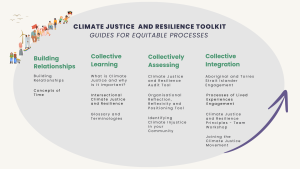Community service organisations (CSOs) can start their climate justice and resilience journey by adopting equitable processes.
Climate justice is about transforming and changing the ways we are doing things and establishing structures that help make what we do in a changing climate more just and equitable for people and Country. This is not necessarily additional work or labour but rather about making climate action, preparedness, and resilience a core part of community services.
For instance, many CSOs already have an environmental policy and an inclusivity policy, or they have a sustainability working group or use Environment, Social and Governance (ESG) to guide and develop their projects and organisational culture. But are those addressing the voices, impacts and needs of the most marginalised in their communities? If not, what are the missing elements?
Transformative intersectional climate justice and resilience means addressing climate change in a way that considers how different factors—like race, gender, and income—affect people’s experiences and challenges. It focuses on making sure that the most marginalised communities, who often face multiple forms of inequality, are supported and included in climate solutions.
For example, CSOs working with people experiencing homelessness might have great programs in places, but how do those programs incorporate transformative intersectional climate justice and resilience? To truly understand what is needed for climate justice and resilience, it is crucial to co-create and co-lead programs and practices with Aboriginal and Torres Strait Islander Peoples and People with Lived Experience.
Climate justice is not always about setting up new services and programs. It is about reflecting on the services and programs we already have in place and considering how they intersect with climate justice and resilience. It is about identifying how people and communities are and will be affected by climate change and social injustice and what CSOs can do to respond to those.
To start an organisational climate justice and resilience journey with this Toolkit, you can take the below steps.
Note: Organisations that are not ready to start a transformative process with the climate justice and resilience process tools, namely those who do not have safer lived Experience Engagement and Aboriginal and Torres Strait Islander Engagement integrated into their work/structure/processes, can use the Toolkit resources to prepare themselves for this.
Using fair, safer and equitable processes to start a climate justice and resilience journey

Building Relationships
- Use the resource relationships to strengthen connections with Country and other-than-human species, foster mutual care and reciprocity, guide the ‘3 Cuppa Tea Rule’ for trust-building, and honour diverse voices to advance Recognitional and Relational Justice.
- Use the resources concepts of time to adopt a holistic approach to time that honours the past, informs the present, and shapes the future, ensuring climate justice and resilience actions respect intergenerational knowledge and equity.
Collective Learning
- Discover what climate justice and disaster resilience are and why a transformative and intersectional approach to them is important for your organisation and the communities you are working with.
- Understand who from your organisation and community needs to be involved in climate justice and disaster resilience work. Visit: Who should be involved?
Collectively Assessing
- Use the organisational reflection and positionality workshop tool to reflect on your organisation and identify biases and assumptions, leading to a more nuanced and reflexive analysis.
- Identify climate injustices in your community and who is affected by climate change and disasters to define the actions your organisations can take -> Use the Resource Library to access resources and individual steps.
- Complete the climate justice and resilience review tools to determine your organisation’s strengths and areas for improvement -> Use the climate justice and resilience review tools to develop an action plan and use the Resource Library to access resources and individual steps.
Collective Integration
- Use the tools processes of Lived Experience engagement and Aboriginal and Torres Strait Islander Peoples engagement to embed Aboriginal and Lived Experience Leadership in your organisational structure and practices for climate justice and resilience work.
- Host a climate justice and resilience principles team workshop to develop your organisational climate justice and resilience principles.
- Join the climate justice movement
- Engage in climate justice advocacy



